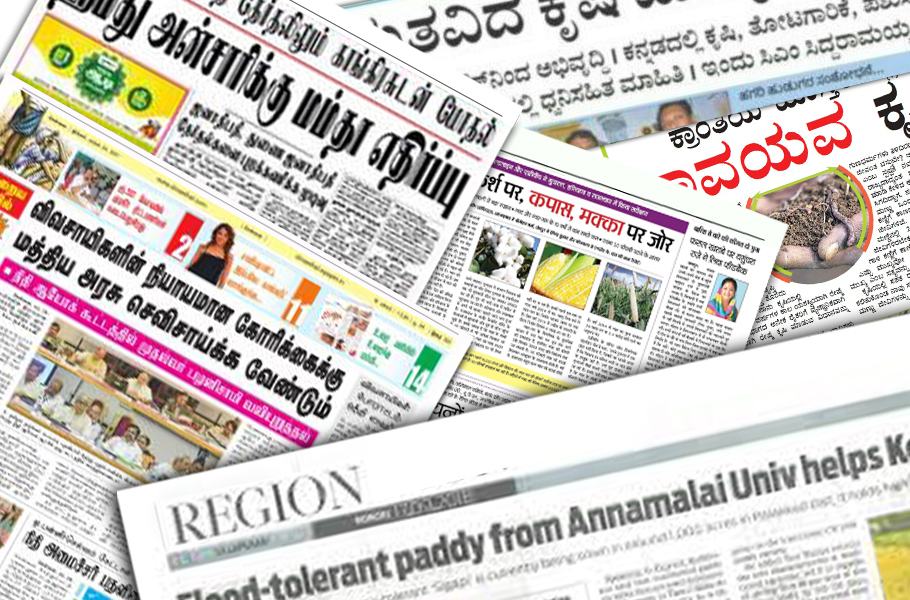
Man held in UP for wrapping meal in paper with Hindu deity images

Just a day after a massive controversy erupted over a poster for a documentary on Goddess Kali by filmmaker Leena Manimekalai, another case of ‘hurt religious sentiment’ has been reported from Uttar Pradesh. A Muslim roadside restaurant owner has been arrested in the state’s Sambhal district for wrapping a meal containing meat in a newspaper carrying images of Hindu deities.
The police said that Mohammed Talib, the restaurant owner, was booked under the Indian Penal Code’s Section 295 A (promoting religious enmity) on the complaint of Hindu Jagran Manch district president Kailash Gupta. In his complaint, Gupta accused Talib of hurting religious sentiments deliberately, reports Hindustan Times.
Swift action by police
Jitendra Kumar, a local police officer, said Talib was booked for wrapping meat items in a newspaper, which carried images of Hindu gods and goddesses during Navratra. “After getting the complaint against Talib, we immediately took action and booked him,” Kumar said.
Also read: ‘India is sinking into dark hole of hate and bigotry’: Leena Manimekalai on Kali row
Workers at the restaurant said that wrapping food items in newspapers is a common practice and Talib did not do this to hurt anyone. They added it was just a matter of chance that Talib used a newspaper carrying images of Hindu gods and goddesses.
The case comes close on the heels of the Kali documentary poster controversy. On Monday, July 4, a poster of a documentary, directed by Madurai-born, Toronto-based filmmaker Leena Manimekalai, drew flak online for showing the Hindu goddess Kaali smoking a cigarette. A flag of the LGBT community is also seen in the background. Twitter exploded demanding the filmmaker’s arrest, and the hashtag #ArrestLeenaManimekalai began trending on the micro-blogging platform. Ajay Gautam, who heads the ‘Gau Mahasabha’, even filed a complaint with the Delhi Police and the Home Ministry calling for an FIR against the filmmaker and a ban on the film.
Increased use of Sections 153 A and 295 A
There seems to be an increased use of Section 153A IPC and Section 295A IPC in the country, going by data and anecdotal evidence. A few months ago, Dr Ratan Lal, a Dalit academician, was arrested for an ‘objectionable’ post on the Gyanvapi mosque row. He too was alleged to have promoted disharmony or enmity between religious groups (Section 153A in the Indian Penal Code) and intentionally and maliciously hurt religious sentiments (Section 295A in the IPC). His arrested added to the trend of increased use of the two provisions.
Similarly, in September 2020, actress and Trinamool Congress MP Nusrat Jahan was subjected to brutal trolling and even received death threats for sharing pictures from a photoshoot where she had dressed up as Goddess Durga.
Also read: Tweet on Shivling in Gyanvapi mosque: Arrested DU professor gets bail
Complaints against advertisements
A study by Advertising Standard Council of India (ASCI), the self-regulating body for the industry, released earlier this year, noted that “a feeling of there being a conspiracy against their faith within people about ‘hurting religious sentiments’ was among the major triggers for complaints against advertisements in the last three years,” that is, since 2019.
The latest annual report of the National Crime Records Bureau records more than 458 per cent jump in cases registered under Section 153A since 2014; it almost doubled in the last two years. But conviction could only be secured in merely 20.4 per cent of cases, a Hindu report says. Though no separate data is available on Section 295A, anecdotal evidence suggests its increased use by the executive.
We don’t have a blasphemy law but the rampant abuse of sections 153A and 295A of the IPC makes the situation worse than that, N C Asthana, a retired IPS officer, said in an article last year.


